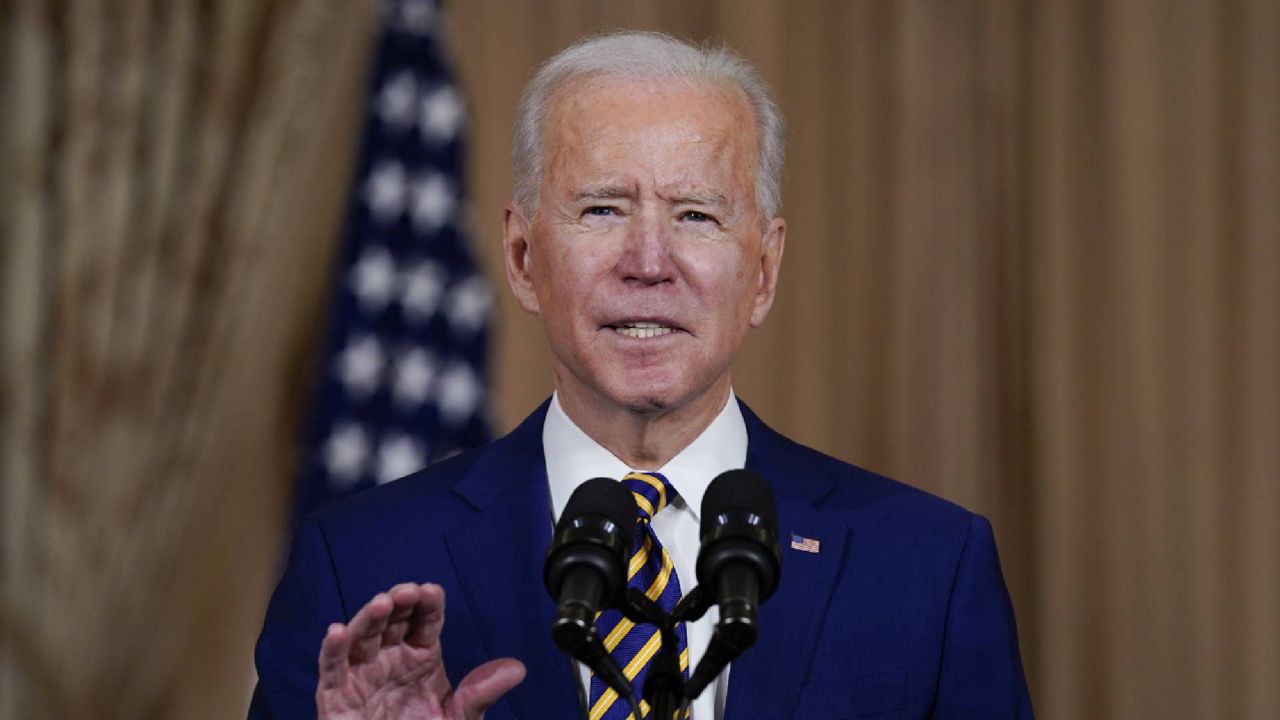President Biden committed to reengaging with U.S. allies and focusing on diplomacy in his first foreign policy address at the State Department Thursday, also following through on a campaign promise to end American support for the war in Yemen.
Biden, who was joined by Secretary of State Anthony Blinken and Vice President Harris, promised to tackle global challenges by partnering with other nations and championing democratic values.
“America is back. Diplomacy is back,” he said.
“We must meet this new moment of accelerating global challenges — from a pandemic to the climate crisis to nuclear proliferation — challenges that will only be solved by nations working together in common cause,” he added.
The president noted his early move to rejoin the Paris Climate Accord, and he also expressed support for diplomats and other State Department employees, who he spoke with earlier in the day, calling them the “face of America.”
“With your help, the United States will again lead not just by the example of our power, but by the power of our example.”
In the address, Biden announced the end of U.S. support for offensive operations in Yemen, a Saudi-led conflict that has killed thousands of civilians and wreaked havoc on the country.
The move fulfills a campaign pledge from Biden, whose administration plans to pursue diplomacy to end the overall conflict in Yemen. Biden sees the United States “playing a more active and engaged role” to end the war through talks, National Security Advisor Jake Sullivan said at a White House briefing earlier in the day.
“This war has to end,” Biden said.
Earlier, Sullivan said that the White House has so far halted two sales of weapons that were put in motion by the last administration. Biden also announced Timothy Lenderking as special envoy to Yemen.
American-made bombs were a part of the U.S. support for the Saudi-led offensive, which began under President Obama. The war in Yemen has led to devastating hunger and human rights abuses in addition to the deadly attacks on civilians.
The end of U.S. support “extends to the types of offensive operations that have perpetuated a civil war in Yemen that have led to a humanitarian crisis,” Sullivan said.
The president said he also directed Secretary of Defense Lloyd Austin to review the U.S. military posture worldwide, which includes a freeze on changes to U.S. deployments in Germany, which the Trump administration moved to cut back on last year.
On Thursday, the president also promised a forthcoming executive order on the refugee program that would raise the admissions cap to 125,000, after President Trump set the goal at a historic low of 15,000 last year.
The order would include directives to help rebuild the refugee program, which atrophied under the Trump administration. He promised that would include support for LGBTQ refugees and asylum seekers.
“The U.S. moral leadership on refugee issues was a point of bipartisan consensus for so many decades,” Biden said. "It's going to take time to rebuild what has been so badly damaged.”
The Associated Press contributed to this report.



